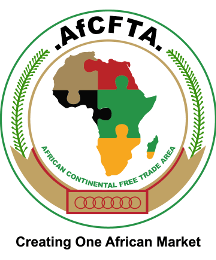The Managing Director, Nissan’s Africa Regional Business Unit, Mike Whitfield, has urged Nigeria and relevant African nations to put in place Automotive Industrial Development Plan towards unlocking the economic benefits of the African Continental Free Trade Agreement (AfCFTA).
Whitfield, also the president of the Association of African Automotive Manufacturers (AAAM), in a statement, lamented that fewer vehicles were owned in Africa than anywhere.
According to him, while Africa accounts for only 1.3 per cent of the world’s vehicles, the continent comprises 17 per cent of the globe’s people with motorisation rate is 42 per 1 000 individuals, compared to the global average of 182.
He said: “The biggest problem is that 80 per cent of the African vehicle fleet is second hand, imported from the United Kingdom, the United States and Japan. “Quite frankly, the vehicles that are brought into the continent are not made for either our road severity or the quality of fuel that is available. As a result, the people who sell them have to alter the engines by disabling the sensors and removing the catalytic converters, creating vehicles that become the worst polluters on the road. There are no warranties, nor spares, so there’s no way of maintaining the integrity of the safety features that the vehicles were originally equipped with. There are no spare parts, so plans have to be made to use alternatives, further compromising the efficiency and capability of the vehicle.
“They are cheap in the short term, but incredibly expensive in the long term, as it’s almost impossible to get spare parts. And because there’s no warranty, it’s almost impossible to get the short-term asset financing that is common elsewhere in the world to buy new vehicles.
“That explains why, for the indigenous auto assemblers, it is incredibly difficult to create a viable automotive market outside of government and corporate purchase, simply because it is cheaper to import second hand cars.”
As a way out, Whitfield urged Nigeria and other concerned African nations to without delay, put in place automotive industrial development policies and programmes.
He stressed that the said policy, when put in place, would create incentives for OEMS and automotive manufacturers, to set up assembly plants in those countries, transferring skills, industrialising and diversifying their economies.
He said: “Developing auto policies to create indigenous automotive industries, further underpinned by auto pact to ensure that economic trade regions within Africa, allows for sustainable intra-continental trade. It will also create a very real continental powerhouse empowered to export vehicles to the international market, as South Africa’s automotive industry is currently doing.
“Another compelling reason for Africa to start building its own vehicles and trading within its regions is that, in less than 30 years’ time, the vehicles that Africa has been accustomed to, absorbing from the rest of the world for so long, will be electric. The dilemma is that Africa will not be ready.What we should be doing is working towards this, helping to industrialise our continent, preparing for that transition by developing an automotive sector that creates real mobility solutions for a continent with the youngest population and a growing middle class which is rapidly urbanising. That same automotive industry will also have to keep abreast of international developments, policies and trends so that the vehicles we produce here will be as desirable to foreign markets as they are locally.”



